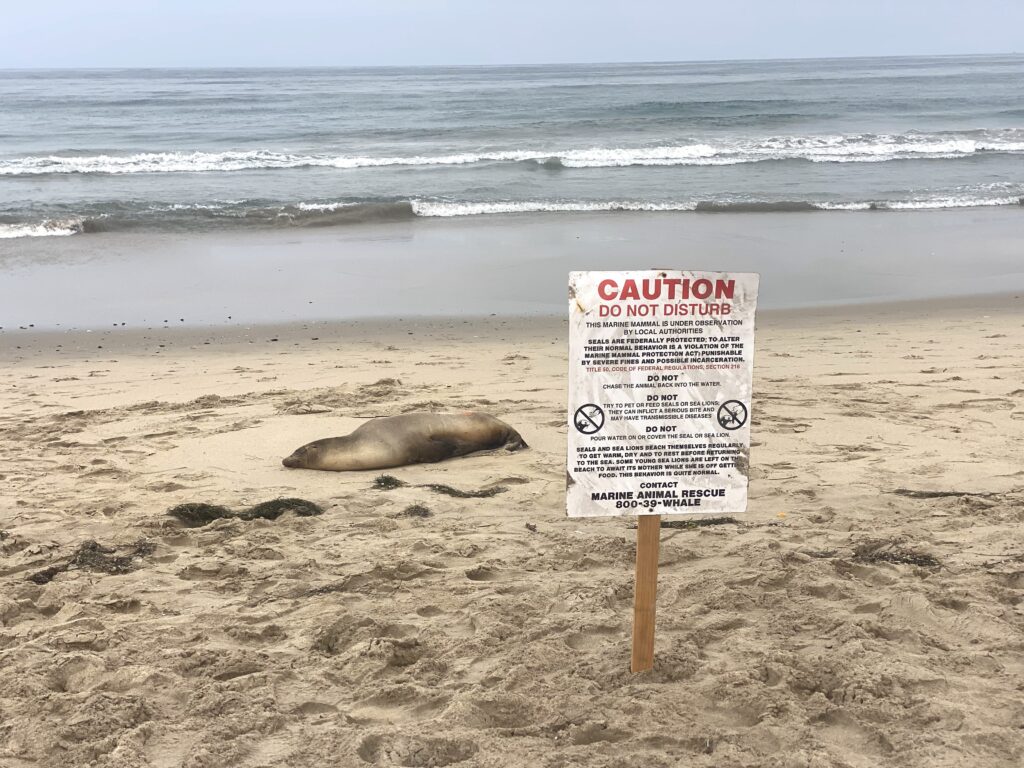Sea lions and dolphins are stranding and dying on the beaches of Southern California because of domoic acid, which causes seizures, brain damage and sometimes death.
Volunteers are needed to help spot strandings, let beachgoers know what is happening, and help with a safe response to protect animals and people.
Locations where volunteers are needed include Palos Verdes, Venice Beach, Santa Monica, Torrance and Redondo. Locations may increase. Those interested in volunteering should visit click here to sign up.
The waters off the coast are experiencing toxic algal bloom, and that algae produces a neurotoxin called domoic acid, which accumulates in fish such as sardines, anchovies, and squid. The toxin then transfers to animals that prey on the fish.
The Marine Mammal Care Center (MMCC) has rescued more than 47 mammals in the past two weeks.
“The Center is dealing with an enormous increase in reports of marine mammals in distress each day,” said John Warner, CEO of the Marine Mammal Care Center based in San Pedro. “We are doing the best we can to keep up with the intense pace, and, if history is any indication, we can expect to see anywhere from 75 to 150 animals in need of rescue over the next four to six weeks.”
The public can best help by reporting all sick and injured marine mammals by calling the MMCC Rescue Hotline (800) 39-WHALE. The public is told to stay away from any mammals they discover on the beach.
It is important for the public to know that animals who have ingested domoic acid (DA) pose a very serious public health and safety risk,” Warner said. “Adult seals and sea lions with DA can present in unpredictable ways, including increased aggressiveness or lethargy and unresponsiveness.
“Please keep your distance from animals you see on the beach and immediately call us if you suspect an animal is in distress,” he said.
The National Oceanic Atmospheric Administration calls domoic acid one of the foremost threats to marine animals.
Sea lions with domoic acid often suffer from seizures, dehydration, severe vomiting, aggressive behavior or lethargic unresponsiveness, miscarriages and even death.
Treatment for sea lions involves keeping animals hydrated with fluids given subcutaneously or orally, administering anti-seizure medication, and supporting them nutritionally.
The massive increase in distressed animals is putting strains on the Center as it continues to deal with the many immature animals already in its care following the annual pup season. Dealing with the current crisis is likely to cost the non-profit organization more than $250,000.
The Center is the only year-round hospital for marine animals in Los Angeles County, and close to 10,000 animals have been rehabilitated by its staff and volunteers since 1992. A non-profit 501(c)3, MMCC depends on grants and contributions (https://marinemammalcare.org/donate/).
Again, report any animals in need of rescue to the MMCC Rescue Hotline at (800) 39-WHALE.


Thanks for posting the link to sign up to volunteer. I have time this week & want to help!
https://app.betterimpact.com/PublicOrganization/9a8ea15e-f0af-43c9-b8e8-4498be9d925b/ActivityCategory/237226/1